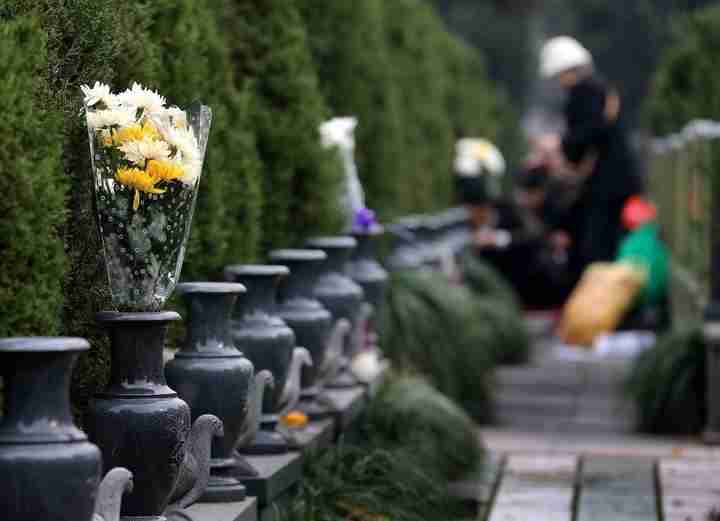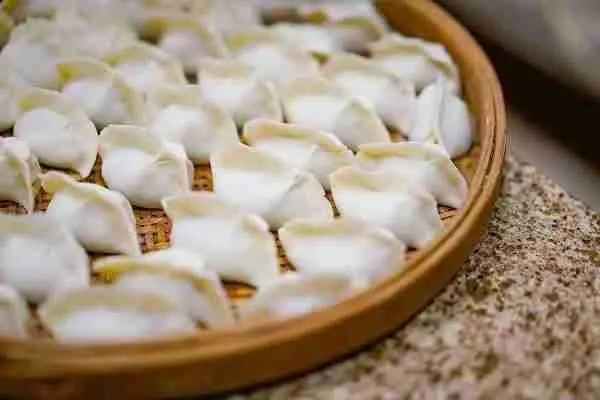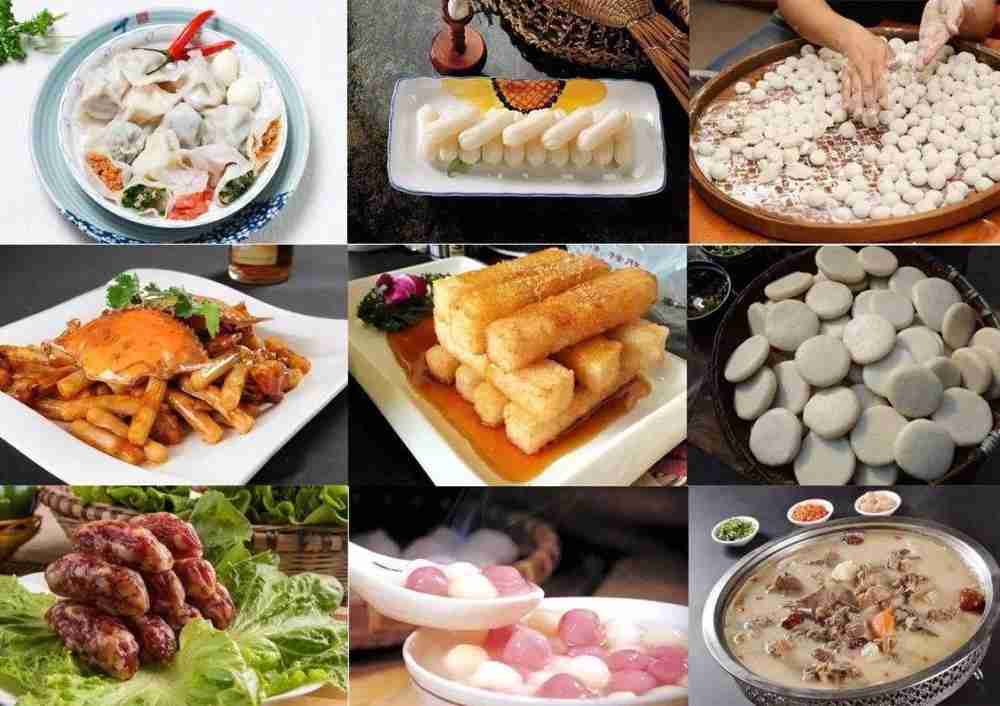The Chinese are known for their many festivals, and there is no doubt that the Chinese have a festival for just about everything that they go through. The Dongzhi Festival is one of these festivals, and you will learn all about it here.
What Is Dongzhi Festival Meaning
Dongzhi is Chinese for Winter’s Arrival. It is one of the big events on the calendar because it’s among the 24 terms used in the Chinese traditional solar calendar.
The celebrations for this day take place on the Winter Solstice, which is the day with the longest night and the shortest day as recorded in the Northern Hemisphere. Dongzhi wasn’t always a big celebration, but it was recognized as an important traditional celebration for the Chinese during the rule of the Han Dynasty, between 206BC and 220AD.
When Is Winter Solstice?
This year, the Winter Solstice will be on the 22nd day in December. The celebrations are held each year on the 21st or the 22nd of December.
Dongzhi Festival History
China’s Dongzhi festival dates back to the reign of the Han Dynasty, 206BC-220AD. It is also said that one of the earliest winter solstices in China was discovered by a sage known as Zhou Feng. He used a sundial for this discovery, and from that time, the Winter Solstice has been one of the most important festivals for the Chinese people.
During the reign of the Tang Dynasty between 618 and 907 and also the time of the Song Dynasty between 960 and 1279, the government officials would enjoy a 7-day holiday. During this time, the officials would go back home to their families to celebrate the festival and also worship their ancestors and the heavens.
Why Is The Dongzhi Festival Celebrated?

The Dongzhi Festival or the Winter Solstice is celebrated because the event marks the turning point of the season. It welcomes the warmer and lighter days of spring. It is also considered a time during winter when families get to enjoy more hearty and fortifying meals that raise hope and encourage good spirits for the arrival of spring.
The festival and the winter solstice marry at this time with the harmonious balance of nature and the energy of the yin and yang. And so, from this point onwards, the dongzhi or the extreme winters, as well as the negative qualities of yin or darkness and extreme cold, give way to the Yang or the positive qualities of warmth and light. So, during these celebrations, people are encouraged to take heart because spring will come.
How To Celebrate Dongzhi Festival (Dongzhi Festival Traditions)
Dongzhi is an elaborate festival, and many traditions are observed during the celebrations. Some of the main festival’s traditions include reciting the Nines of Winter, worshiping the heavens and the ancestors, earing dumplings and also ginger rice, and making rice wine, among others. Below is a breakdown of these traditions:
- Worshipping the heavens
Since the rule of the Han Dynasty, the Chinese people have always taken time to worship heaven during the Dongzhi festival/ day. The festival is also considered a reason why many temples were constructed during Han Dynasty’s time. One of these temples was the Temple of Heaven, located in Beijing. During the heaven worship, the people prayed and hoped that the heavens would give them a great harvest and also good health in the new/ coming spring and year.
During the celebrations held during the Qing dynasty, the celebrations are held in the rounded dome in the Temple of Heaven located in Beijing. The temple’s round mound was uniquely designed to represent the sky. The celebrations also feature something called the sacrifice of the heavens, during which the emperor would bathe and completely abstain from eating meat and drinking alcohol as his way of paying his respects.
- Worship of the ancestors
The other tradition that is observed during the Dongzhi Festival is the worship of the ancestors. This tradition is very important, and the people celebrating would set incense right in front of their cooking burners in front of the ancestors’ tablets. They would also place food on the table in front of the tablets. Most of the foods served included steamed chicken, dumplings, and cooked pork. These were all symbolic offerings to the family and the ancestors.
In parts of Eastern China, the people would take incense and food to the ancestors’ tombs. They would also sweep and clean out the tombs they pay their respects to the ancestors, all during the winter solstice. The graves would be repaired too. And both the Huzhou and the Hangzhou people would pay their respects to the ancestors, too, in the tombs.
In Anhui, Zhejiang, and other places, it is customary to visit family graves and perform tomb-sweeping ceremonies before and after the Winter Solstice with family members. The Winter Solstice is also known as the “Winter Sacrifice” and is widely observed throughout the country with elaborate ceremonies. In counties such as Shaoxing and Xinchang in Zhejiang, people often visit and maintain graves on the day of the Winter Solstice by adding soil, removing weeds, and repairing the tombstone. It is believed that this will bring good luck and prevent any mishaps. In Inner Mongolia, the Winter Solstice is known as the “Ghost Festival,” and people bring incense and paper money to the graves of their ancestors. In Jiangxi and Changning, Hunan, people also pay tribute to their ancestors on the day of the Winter Solstice, just as they do on Qingming Festival.
In Linyi, Shandong, people believe that the Winter Solstice is a day to provide warm clothing and fortify the house for the deceased. Each household will cut paper clothes and burn them in front of the grave, and add soil to maintain the grave. In coastal areas of Guangdong such as Raoping Haishan, local fishermen will hold ancestral worship ceremonies before going out to sea to pray for the protection of the gods and ancestors. In addition to ancestor worship, some customs are also similar to those on Qingming Festival in Hui’an, Guangdong.
- Making Rice Wine
The other tradition observed during the Dongzhi Festival is the tradition of drinking rice wine. This takes place on the night of the Dongzhi festival, especially in Southern China. This is a big part of the celebration where the rice wine is made using yellow rice or glutinous rice, in addition to the sweet-scented osmanthus. This liquor drinking part of the festival is quite important because it gives off the feeling of warmth, especially on the cold nights of the Dongzhi Festival.
- Roasting meat
This is the other tradition observed at the Dongzhi festival, and the people make roasted meat. The meat is also preserved for the festival. There is also a great deal of baked pork that has, over the years, turned out to be one of the most indispensable delicacies served on the dinner table during the Dongzhi festival – this is common in Guangxi and Guangdong provinces.
- Reciting the Nines of the Winter (Shu Jiu)
In Chinese folklore, the Dongzhi Festival is also marked by the tradition known as the Counting Nine Nines. This is important and quite symbolic because the entire winter is basically divided into nine of nine days, and there is a total of eighty-one days. Also, the Winter Solstice starts at the beginning of the nine-nines, after which spring starts.
Over time, the Chinese people have compiled many jingles and slangs based on different landscapes, climatic conditions, practices in farming, as well as customs for the specific nine-nines day. These folk recitations are not just a summary of the experiences people have had regarding the climate through the years; they also represent the people’s specific hopes for the spring, even in the harshest of the winter season.
- Eating Dumplings

The Northern Chinese people also celebrate the Dongzhi festival by eating much of the ear-shaped dumplings. These are eaten and believed to protect people’s ears from frostbites.
This part of the celebration also holds a special meaning. It is believed that that tradition was started by Zhang Zhongjing, who was a famous Chinese doctor from ancient China. The doctor noted that the locals suffered from frostbites in the ears during the cold of winter nights, and he ordered that the people make ear-shaped dumplings made of hot pepper and mutton, among other ingredients. These ingredients and the dumplings helped to keep the body warm throughout while also keeping the people warm and filled.
- After eating the dumplings, their ears would be cured. This tradition has since been passed down the generations and is still practiced today.
- Eating Glutinous Rice Balls
In southern Chinese, the people would observe the Dongzhi festival by eating the glutinous rice balls. The rice balls are a symbol of reunion, and they are also used for ancestral worship. They are also presented to relatives and to friends as gifts.
- Mutton Soup
This is also a great part of the tradition. It dates back to the Han Dynasty, and it is believed that Liu Bang, who founded the Han dynasty, ate mutton on the Winter Solstice night for years and always felt that the mutton was highly praised and delicious—since then, eating mutton has been an important part of the celebrations.
The other traditions observed include:
- Gifting shoes to seniors – because respecting the elderly is an important virtue to the Chinese people.
- Treating teachers – this is also a big deal because the Chinese hold teachers and the teaching profession in high regard.
Dongzhi Festival Greetings
The common forms of greetings during the Dongzhi festival include “Happy Dongzhi Festival” or “Happy Winter Solstice”, which translates to Dongzhi Kuaile in Mandarin.
And if you wish to send a message to friends during the festival, you could say: Dongzhi kuaile, zhu ni shenti jiankang, which means, Happy Winter Solstice, and I wish you good health.
Dongzhi Festival Clothing
There is no actual traditional clothing for the festival, although an increasing number of people now wear the Hanfu from the Han Dynasty for the celebration of the winter solstice. Ad
Dongzhi Festival Decorations
Like many other Chinese festivals, the Dongzhi festivals feature a great deal of red décor, red lanterns and decorations, lanterns, and large family gatherings.
Dongzhi Festival Food

Common Chinese foods enjoyed during the festival include:
- The Tangyuan or glutinous rice balls
- Wonton soup common in Eastern China food
- Mutton soup
- 9-layer cakes made of rice flour and shaped like animals like sheep, ducks, pigs, cows, tortoises, etc.
- Eight treasures porridge
- Dumplings
- Glutinous rice balls
Dongzhi Festival Activities
Besides enjoying the best foods listed above, the festivities also involve sweeping and cleaning out graves and tombs of loved ones, worship of the heavens, and recitation of the Nines of the Winter or the Shu Ji.